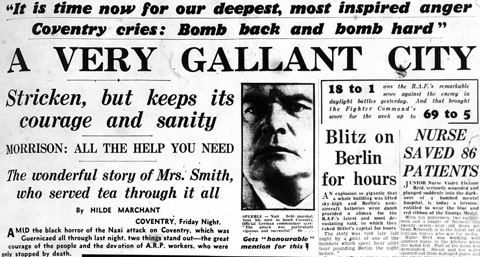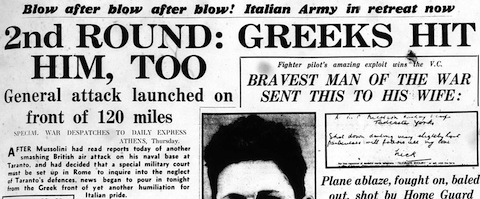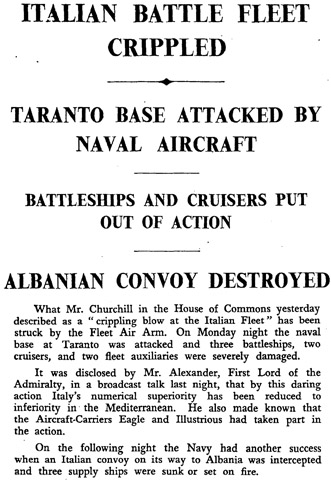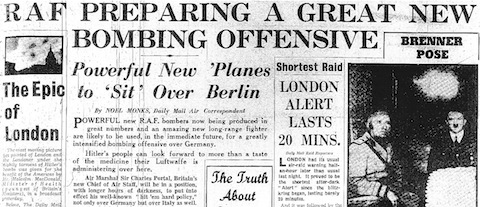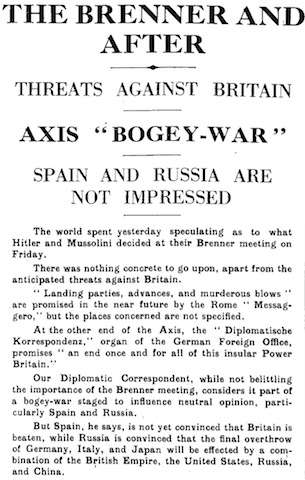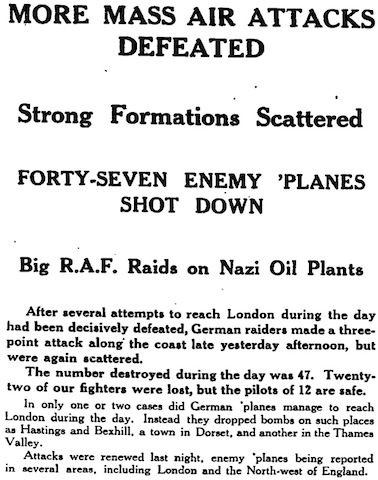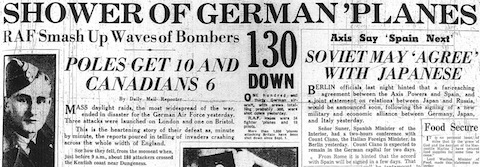Sunday, 17 November 1940
I have an embarrassment of Sunday papers now: the Observer, the Sunday Express, News of the World and The People. The last named (which has sales of more than 3 million per issue) has Coventry on the front page, but halfway down and underneath a photograph of a pig (I couldn’t say why). US-British cooperation, […]


